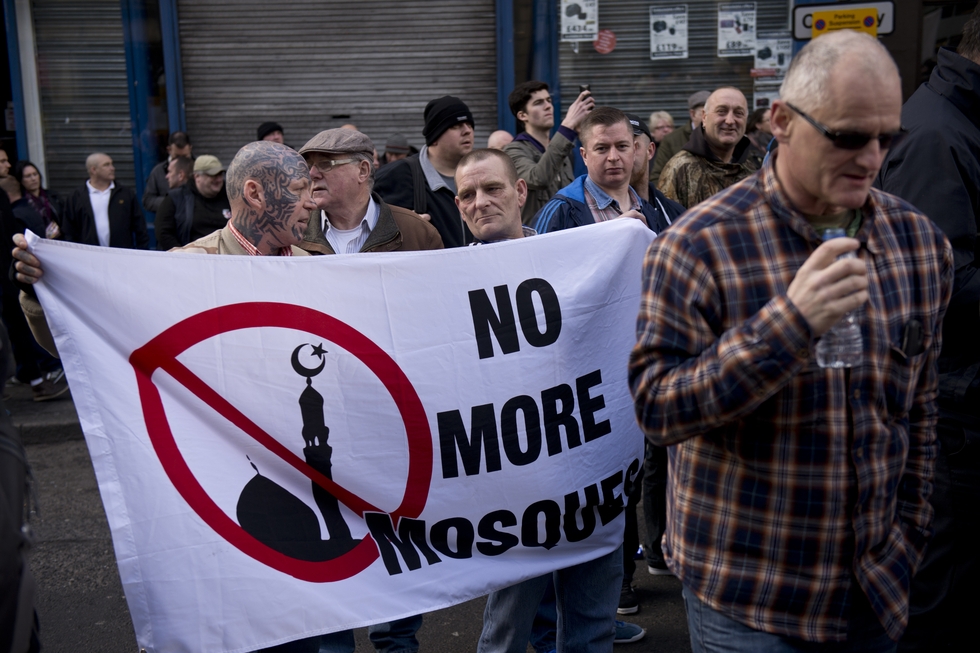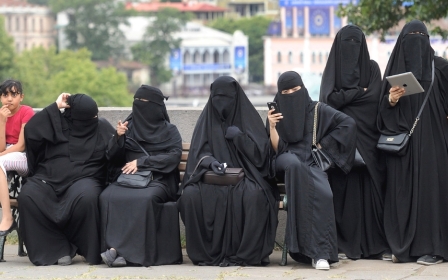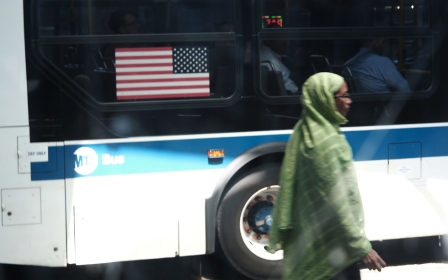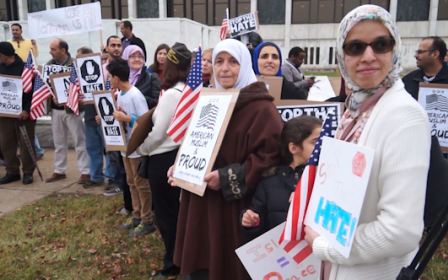Attacks against American Muslims on the rise: FBI report

Attacks against American Muslims have risen over the past year, according to a new FBI report on Monday.
The data, which the New York Times calls “the most comprehensive look at threat crimes nationwide,” said that hate crimes were often related to the inflammatory rhetoric of the US presidential campaign.
The report detailed 5,815 hate crimes in 2015, which amounts to 340 more since the previous year. They include “assaults, bombings, threats and property destruction against minorities, women, gays and others,” according to a New York Times report.
The list showed American Muslims experiencing the biggest increase in attacks. A total of 257 cases of attacks on mosques and assaults happened in 2015 – a 67 percent jump from the year before. Overall, the number of attacks against Muslim Americans was at its highest since 11 September 2001.
“I think the community has been under siege for the last 16 years. You have a concerted effort by certain groups that have demonised Muslims in the public and those groups have been successful by putting out lots of propaganda. I think this last presidential campaign didn’t help things, but this has been going on for a while,” Mustafaa Carroll, the executive director of the Council of American Islamic Relations in Texas, told Middle East Eye.
“The issue of Islam and Muslim Americans have been negatively politicised to such a degree that people are fearful – and ultimately somebody out there will be too afraid or so angry to do something. I think that is what’s going on,” Carroll added.
He went on to say that Trump’s presidential campaign and appointment of Stephen Bannon, formerly in charge of the arch-conservative news outlet Breitbart, to chief White House strategist could be a harbinger of worse to come.
"[Trump] just appointed Breitbart’s top person as one of his advisors. Breitbart is a notorious Islamophobic network. That’s not the way to start off," Carroll said. "If you want to try to heal the country, you put people around you who are healers. You don’t put known Islamophobes and known racists in your cabinet and then say you want to bring the country together. It doesn’t sound like he’s trying to bring the country together."
A surge in reports of racist incidents during the election campaign has sparked fears among minorities and civil rights groups that Trump's election as US president has emboldened hate groups.
Swastikas and Nazi slogans scrawled on a Philadelphia storefront, xenophobic chants at a New York high school, threatening letters in the mail, insults on college campuses: reports like these have proliferated since 8 November.
"I have a scarf on. Passed by someone on the platform today and he says, 'Your time's up, girlie,'" journalist Mehreen Kasana wrote on her Twitter account.
Asked about the outbreaks of anti-Muslim, anti-Hispanic bullying, Trump said in a CBS interview aired onSunday that he was "saddened to hear that," adding it was "a very small amount".
"If it helps, I will say this and I'll say it right to the cameras. Stop it," he said.
Some incidents have involved more than verbal violence.
A Muslim student at San Jose State University in California reported that a white man tried to rip off her veil, nearly choking her.
Another student at the University of Michigan in Ann Arbor spoke of being accosted by a man who threatened to set her on fire with a lighter unless she took off her Muslim headdress.
Despite the tense climate, Trump picked firebrand Bannon, a darling of white supremacists, to be his chief strategist.
Choosing him for a top White House post "only further emboldens the extreme fringes during this very tense time," warned Oren Segal, head of the Anti-Defamation League, a Jewish American group.
AFP contributed to this report.
New MEE newsletter: Jerusalem Dispatch
Sign up to get the latest insights and analysis on Israel-Palestine, alongside Turkey Unpacked and other MEE newsletters
Middle East Eye delivers independent and unrivalled coverage and analysis of the Middle East, North Africa and beyond. To learn more about republishing this content and the associated fees, please fill out this form. More about MEE can be found here.




